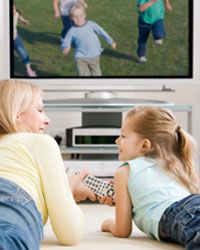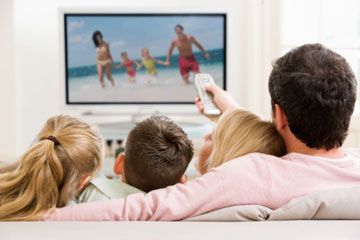It's estimated that two-thirds of infants and toddlers are exposed to onscreen media -- including TV and Internet -- for two hours a day, and kids under age 6 average the same amount of time overall. Children 8 to 18 spend nearly four hours a day in front of the TV, and another two hours on the computer (outside of schoolwork) and playing video games [source: Rideout et al].
There's no doubt that the way we interact -- both with our media and with each other -- is changing as technology changes. But of course, that's always been the case. Before e-mail or the telephone, we relied on the postal service; before airplanes, it could take weeks or months to visit family in other states or countries. Before radio and the advent of television, we got our news from sources that might be months out of date.
Advertisement
As parents, however, it's hard to take the long view: We spend our time thinking about the foods our children eat, where they go after school, who they're hanging out with and what's on their minds. It's more important than ever to be mindful of what our children consume, not only at the dinner table, but also through the media.
A large part of parenting means teaching children about the world around them. What that means today is teaching them the proper ways to enjoy television and other media responsibly and critically, to understand the messages they're receiving, and to make sure they have the tools to make rational decisions about the entertainment they enjoy.
Read on to learn more about the ways television affects children's emotional state, including research into the ways that violence and other highly emotional entertainment can lead to behavioral problems.
Advertisement




